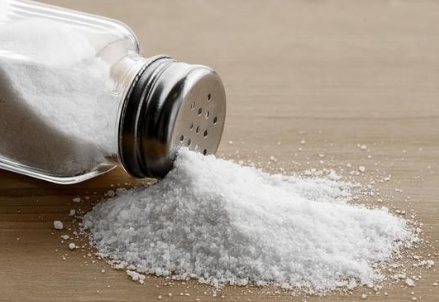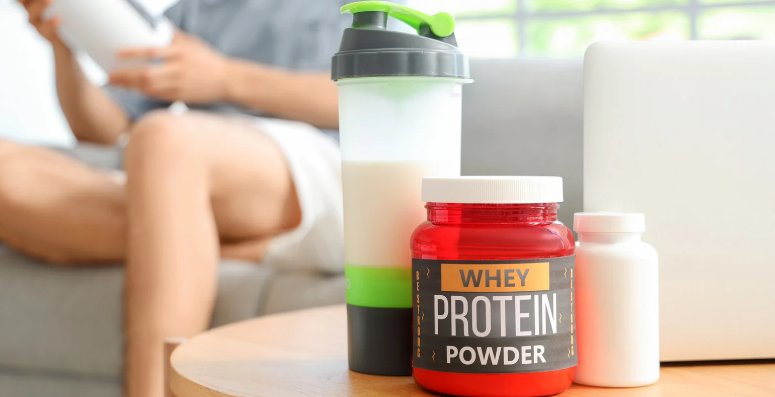"I am so undesirable."
"I am fat and overweight and I do not have an attractive body. I want to be one of those models so I can feel good about myself."
"I look nothing like anyone in those pictures, and I never will."
When David Frederick put these and similar quotes about body image in front of his students at Chapman University in California, he asked them to guess if each was written by a man or a woman. The answer, Frederick says, surprised them: All of them were from men.
"Body dissatisfaction affects more women than men, and the negative effects are more pervasive," Frederick, Ph.D., an associate professor of health psychology, says. "But this often gets sorted in people's minds as 'body image is a problem for women and not for men.'"
Studies show that's not the case. In a review of five national U.S.
Even when men have lost weight and aren't overweight anymore, these feelings can linger. For George*, a 29-year-old who used to be obese, there's never satisfaction with the progress he's made. "I view myself and my body in the context of where I'd like to be, never
Dan, a dad in Virginia, also stresses about minor increases in his weight after losing 60 pounds in college. He "hated being chubby" as a kid and when his weight ticks up, he feels bad all over again: "I worry about being unhealthy for my kids, unattractive to my spouse and not fitting in any of my clothes."
Bob, an Ohio father, says he still remembers the first time someone called him fat—in first grade, more than 30 years ago. "I know that I place too much emphasis on my physical state as an indicator of my self-worth," he says. Even though he's very fit, he puts pressure on himself: "If I go a week without working out, I'm antsy and irritable."
Conversely, some men don't have issues with feeling too big, but too small. Stanley*, a 36-year-old man in the healthcare industry, said he feels self-conscious about his not-so-muscular legs, often derided as "chicken legs." And he's not alone: In Frederick's research review, more than 30 percent of heterosexual and homosexual men were dissatisfied with their muscle tone and size.
"Just as female models have become increasingly slender and
The body image issues brought forward by images like these don't just make men feel bad, but can have real repercussions on mental health. Men who are dissatisfied with their bodies are more likely to report anxiety, depression, compulsive exercise behavior, loneliness, and participate in more risky behaviors, including steroid and meth use.
While they may not be as prevalent as for females, body image issues for men have serious consequences for physical and mental health. If you're experiencing issues such as these, it's important to learn to recognize and cope with what's happening between your ears, while also addressing the physical symptoms you're experiencing in a healthy manner.
To "fix" body image issues, start with your mind.
When men are dissatisfied with their bodies, their first reaction is often to try to change their bodies—just lose the weight! Lift heavier! Do more cardio! But that doesn't address the main issue, says Dan Sainsbury, which is that you feel bad. And that should be addressed first.
"If your ego self is tied up in your physical form, you're going to take a very big knock, emotionally, when you can't maintain that," says Sainsbury, a psychotherapist in the U.K. But your emotions do not need to be wrapped up in your physical status. If you line up every obese man in America, Sainsbury says, they won't all feel the same about their weight. On one end of the spectrum will be a man who doesn't care that he's overweight. On the other end, there's a man who is emotionally torn apart by his weight. "There's a continuum of internal response, so none of [the responses] are true.
The first step, Sainsbury says, is to be aware of how you're feeling. "Be honest with the way you feel about it and label the way you feel: I feel terrible; I feel ashamed; I feel afraid," he says. "Step two is to know that it might feel like it's coming from the outside, but the feeling is really within you. Forget about the outside world for the time being. Take 100 percent responsibility for [the way you feel.]"
Once you're aware of how you're feeling and have labeled it, many psychologists and therapists talk about acceptance of the physical situation that gave rise to these feelings. Acceptance doesn't mean being resigned to the situation, but rather resolving to stop beating yourself up while you pursue the more "ideal" situation.
"Acceptance is coming to a place of contentment and serenity with whatever's happening," says Katie Ziskind, owner of Wisdom Within Counseling. "It's an internal head space you have to come to in order to make a change. When you accept the self, you get to this 'Okay-ness.' My past is okay. Right now is okay. When you switch to a different perspective, positive things come out of that."
To get
While these techniques are great, Ziskind says, you don't have to—and shouldn't—do all the mental work alone.
"Everyone needs an artillery of support: you may have a personal trainer or yoga teacher who helps you with your body; a therapist can be supportive for your emotions," she says. If your body image issues are affecting your daily life, or if you feel comfortable talking to someone, a therapist may help you with awareness and acceptance. If you're not comfortable with a therapist, Ziskind recommends trying to find someone you can talk to who can connect with the pain you're feeling. "It could be an eating disorder specialist. It could be a marriage specialist. It could be an acupuncturist. Or you could go to yoga. You can have these people in your corner [to help,]" she explains.
Body Image Issue #1: "Man Boobs"
Around one in three men will experience gynecomastia—a build-up of breast tissue that can lead to an appearance of "man boobs"—in their lives. But for some men who have gained weight, they don't have "true" gynecomastia, says Alex
The condition can cause men to wear larger shirts or feel self-conscious in a bathing suit, sometimes leading them to consider surgery as a solution. Even if your increase in breast size or appearance is from fat gain, though, reduction surgery may not be necessary—or that helpful, says Shawn
"If your breast size gain has been tied to extreme weight gain, fix that first and then see what happens. Don't go out and think you need to get breast reduction surgery, [which is] not really addressing the underlying cause,"
Body Image Issue #2: "Beer Gut"
In his study, Frederick found that 28 percent of gay men and 14 percent of heterosexual men hide their stomach during sex due to feeling shame about its appearance. Carrying weight around your middle does more than just affect your appearance, though. According to a 2004 study, men with a waist circumference of 39 inches or more have significantly lower testosterone levels than those with waists of 37 inches or less, and the lowest levels of testosterone are in men with big waists but relatively lower BMIs, meaning they have fat concentrated around the belly. Furthermore, beer guts are often comprised of visceral fat, a deeper, rock-hard fat that is close to your organs and is associated with increased risks of heart disease and death.
In many ways, you can't control where your body gains fat because it's different in every person. But
You can also address belly fat with diet. The Mediterranean diet, which is rich in monounsaturated fats from seeds, fatty fishes, olive oil and nuts, has been shown to reduce belly fat compared to diets where fat intake is from other sources.
Body Image Issue #3: "Love Handles"
As with the beer gut, you can't control where your body stores fat—and you can't easily "spot reduce" where it comes off. That said, different exercise modalities can help burn more fat: In studies, interval training, where bouts of higher-intensity work are alternated with periods of lower intensity activity or rest, have been shown to burn fat more efficiently than slow, steady cardio work.
Bursts of faster work don't have to be for very long, either: In one study of intervals, study participants did 8-second bursts throughout a 20-minute workout three times per week, resulting in four pounds of fat lost in 12 weeks. To get the same fat loss from steady-state work, the scientists said you'd have to exercise 7 times as long.
You can also get high-intensity, fat-burning work through total-body circuit work. Mike Whitfield, a trainer and weight-loss coach, and author of "Rise and Hustle," offer this six-move circuit that includes exercises that will help build muscle in the area of your love handles, which could help improve their appearance while you burn fat.
To do this workout, perform each exercise for 30 seconds, then move to the next exercise without resting. When you've finished all six
Exercise 1: Prisoner Bodyweight Squat
Exercise 2: Spiderman Climb
Exercise 3: Jump Rope or Jumping Jacks
Exercise 4: Dumbbell Row
Exercise 5: Kettlebell or Dumbbell Swing
Exercise 6: Side Plank (30 seconds per side)
Body Image Issue #4: Feeling "Too Small"
As the image of the ideal male body has grown, many men have come to feel that they're too small—often in the chest or legs. Whether it's seeing photos of the Rock training for a role or the latest superhero up on the big screen, the desire to "get gains" and achieve perfect musculature is as intimidating and desirable for men as Victoria's Secret
One thing to keep in mind,
"Genetics
Exercise selection matters, too. If you've been lifting your chest a lot to try to get it to grow,
"The bench press is a great lift, but it is entirely too easy to use the anterior deltoids [shoulders] to take over a great deal of the press," he says. If you're benching a
Another thing to keep in mind for chest growth as well as leg growth,
Top bodybuilders have been
*Name changed to protect privacy













